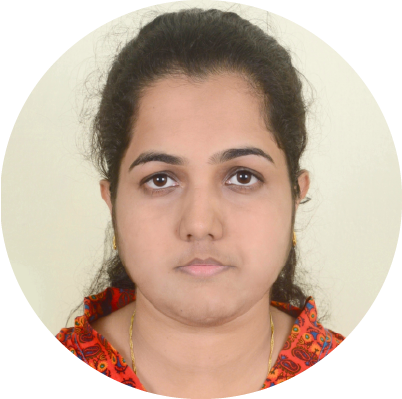| OPSC OAS Important Dates 2024 | |
| Date Of Notification | 30th December 2023 |
| Prelims | October 2024 |
| Mains | March 2025 |
| Interview | November 2025 |
Odisha PCS
Our OPSC Toppers

Suchismita Panigrahy
AIR-2
OPCS 2021

Shrusty Pradhan
AIR-36
OPSC 2021

Radhika Sharma
AIR-47
OPSC 2021

Laxmipriya Nayak
AIR-91
OPSC 2021

Saswat Sovan Mahapatra
AIR-153
OPSC 2020
Important Dates
About the Exam
The Odisha Public Service Commission (OPSC) stands as a cornerstone in the realm of civil services in the state of Odisha, India. The commission’s role in shaping the administrative landscape of Odisha is pivotal, offering aspiring individuals a pathway to contribute significantly to the state’s development and governance.
Examination Pattern
The OPSC OAS is a Three-Stage Examination:
|
Examination |
Exam Pattern |
Marks |
| Prelims | General Studies | 200 marks |
| CSAT (Q) | 200 marks | |
| ⠀ | ||
| Mains | EnglishLanguage (Qualifying) | 250 Marks |
| Odia Language (Qualifying) | 250 Marks | |
| Essay | 250 Marks | |
| General Studies I | 250 Marks | |
| General Studies II | 250 Marks | |
| General Studies III | 250 Marks | |
| General studies IV | 250 Marks | |
| Optional Paper 1 | 250 Marks | |
| Optional Paper 2 | 250 Marks | |
| Total – 1750 Marks | ||
| ⠀ | ||
| Interview | 250 Marks |
OPSC OAS Syllabus
General Studies:
OPSC OAS Prelims Syllabus
General Studies
- Current events of national and international importance
- History of India and Indian National Movement
- History of Odisha and Odia Nationalism
- Odisha and Indian Geography – Physical, Social, Economic Geography of India and the World
- Indian Polity and Governance-Constitution, Political System, Panchayati Raj, Public Policy, Rights Issues, etc
- Economic and Social Development-Sustainable Development, Poverty, Inclusion, Demographics, Social Sector Initiatives, etc
- General issues on Environmental ecology, Bio-diversity and Climate Change – that do not require subject specialisation
- General Science
CSAT
- Comprehension;
- Interpersonal skills including communication skills;
- Logical reasoning and analytical ability;
- Decision making and problem solving;
- General mental ability;
- Basic numeracy (numbers and their relations, orders of magnitude, etc. – Class X level), Data interpretation (charts, graphs, tables, data sufficiency etc. – Class X level)
OPSC OAS Mains Syllabus (General Studies & Essay)
GENERAL STUDIES–I
Heritage and Culture
- Indian culture covering the salient aspects of Art forms, Literature and Architecture from Ancient to Modern times.
- Temple Architecture of Odisha.
- Socio-cultural development in Odisha.
- Bhakti Movement in Odisha and its impact on the Society of Odisha.
- Evolution and Growth of Odia Language and Literature and development of Odia Literature
- Regional Tradition of Odisha-Festivals.
History
- Modern Indian history from about the middle of the eighteenth century until the present – significant events, personalities, issues.
- The Freedom Struggle – its various stages and important contributors/contributions from different parts of the country.
- Post-independence consolidation and reorganization within the country.
- Kalinga War and its significance
- Dynastic History of Odisha: Mahameghavahan Kharavela, The Bhauma Karas and The Somavamsis, The Gangas and Gajapatis.
- Early Resistance Movements ni Odisha- Paik Rebellion, Vri Surendra Sai and the Revolt of 1857.
- Creation of Odisha Province.
- Freedom Movement and Praja Mandal Movements ni Odisha; Social bases of Odia Nationalism; Integration of Princely States in Odisha; Social reform movements in Odisha.
Geography of India with special reference to Odisha
- Physical, economic and social geography of India.
- Important Geophysical phenomena such as earthquakes, Tsunami, Volcanic activity, cyclones, geographical features and their location-changes in critical geographical features (including water-bodies and ice-caps) and in flora and fauna and the effects of such changes.
- Odisha’s natural resources: water, forests & minerals.
- Odisha’s Physiography and Riverine system.
- Salient features of Indian society, Diversity of India and Odisha.
- Role of women and women’s organization, population and associated issues, poverty and developmental issues, urbanization, their problems and remedies.
- Effects of globalization on Indian society as a whole and Odisha.
- Distribution and growth of tribes and tribal population in Odisha; Urbanization – Growth of urban population and urban centres in Odisha.
- Social empowerment, communalism, regionalism & secularism.
GENERAL STUDIES–II
Governance, Constitution, Polity and Inter-State Relations
- Indian Constitution – historical underpinnings, evolution, features, amendments, significant provisions and basic structure.
- Functions and responsibilities of the Union and the States, issues and challenges pertaining to the federal structure, devolution of powers and finances up-to local levels and challenges therein.
- Separation of powers between various organs dispute redressal mechanisms and institutions.
- Comparison of the Indian constitutional scheme with that of other countries.
- Parliament and State legislatures – structure, functioning, conduct of business, powers & privileges and issues arising out of these.
- Structure, organisation and functioning of the Executive and the Judiciary – Ministries and Departments of the Government; pressure groups and formal/informal associations and their role in the Polity.
- Salient features of the Representation of People’s act, Odisha Right to Public Services Act and Odisha Lokayukta Act.
- Appointment to various Constitutional posts, powers, functions, and responsibilities of various Constitutional bodies.
- Statutory, regulatory, and various quasi-judicial bodies.
- Important aspects of governance, transparency and accountability, e-governance applications, models, successes, limitations, and potential; citizens charters, transparency & accountability, and institutional and other measures.
- Role of Central and State Civil services in a democracy.
- Panchayati Raj Institution (PRIs) in Odisha.
- Odisha and its neighbourhood – relations.
Social Justice
- Government policies and interventions for development in various sectors and issues arising out of their design and implementation – India and Odisha.
- Development processes and the development industry – the role of MSMEs & women SHGs.
- Welfare schemes for vulnerable sections of the population by the State and the performance of these schemes; mechanisms, laws, institutions, and Bodies constituted for the protection and betterment of these vulnerable sections- India and Odisha.
- Issues relating to development and management of social sector/ Services relating to Health, Education, Human Resources – India and Odisha.
- Issues relating to poverty and hunger – Sustainable Development Goals
GENERAL STUDIES–III
Science & Technology
- Science and Technology-developments and their applications and effects in everyday life.
- Achievements of Indians ni science & technology; Indigenisation of technology and developing new technology.
- Awareness in the fields of IT, Space, Computers, Robotics, Nanotechnology, Bio-technology and issues relating to intellectual property rights.
Economic Development
- Indian Economy and issues relating to planning, mobilization of resources, growth, development and employment.
- Inclusive growth and issues arising from it.
- Government Budgeting – India and Odisha.
- Land reforms in India & Odisha.
- Effects of liberalization on the economy, changes in industrial policy and their effects on industrial growth.
- Infrastructure: Energy, Posts, Roads, Airports, Railways in the Country and Odisha.
- Industrialisation in Odisha – Issues and prospects.
Agriculture
- Major cropping patterns in various parts of the country, different types of irrigation and irrigation systems storage, transport and marketing of agricultural produce and issues and related constraints; e-technology in the aid of farmers in India & Odisha.
- Issues related to direct and indirect farm subsidies and minimum support prices; Public Distribution System- objectives, functioning, limitations, revamping; issues of buffer stocks and food security; Technology missions; economics of animal-rearing in India & Odisha – Doubling of Farmers’ Income.
- Food processing and related industries in India & Odisha – scope and significance, location, upstream and downstream requirements, supply chain management.
Biodiversity and Environment
- Conservation, environmental pollution and degradation, environmental impact assessment.
- Disaster and Disaster Management in the Country and in Odisha – State institutions and policies on Disaster Management.
- Linkages between development and spread of extremism. Left wing extremism in Odisha.
Security and Disaster Management
- Challenges to internal security through communication networks, role of media and social networking sites in internal security challenges, basics of cyber security; money-laundering and its prevention – Arts & policies relating to Cyber Security and Money laundering.
- Security challenges and their management in border areas – linkages of organised crime with terrorism.
- Various Security forces and agencies of the Country and Odisha and their mandate.
GENERAL STUDIES–IV
Ethics, Integrity and Aptitude
This paper will include questions to test the candidates’ attitude and approach to issues relating to integrity, probity in public life and his problem-solving approach to various issues and conflicts faced by him in dealing with society. Questions may utilize the case study approach to determine these aspects. The following broad areas will be covered:
- Ethics and Human Interface: Essence, Determinants and Consequences of Ethics in Human Actions; Dimension of Ethics; Ethics – in Private and Public Relationships. Human Values – Lessons from the Lives and Teachings of Great Leaders, Reformers and Administrators; Role of Family, Society and Educational Institutions in Inculcating Values.
- Attitude: Content, Structure, Function; its Influence and Relation with Thought and Behaviour; Moral and Political Attitudes; Social Influence and Persuasion.
- Aptitude and Foundational Values for Civil Service, Integrity, Impartiality and Non-partisanship, Objectivity, Dedication to Public Service, Empathy, Tolerance and Compassion towards the weaker-sections.
- Emotional Intelligence-Concepts, and their Utilities and Application ni Administration and Governance
- Contributions of Moral Thinkers and Philosophers from India and World.
- Public/Civil Service Values and Ethics in Public Administration: Status and Problems; Ethical Concerns and Dilemmas in Government and Private Institutions; Laws, Rules, Regulations and Conscience as Sources of Ethical Guidance; Accountability and Ethical Governance; Strengthening of Ethical and Moral Values in Governance; Ethical Issues in International Relations and Funding; Corporate Governance.
- Probity in Governance: Concept of Public Service; Philosophical Basis of Governance and Probity; Information Sharing and Transparency in Government, Right to Information, Codes of Ethics, Codes of Conduct, Citizen’s Charters, Work Culture, Quality of Service Delivery, Utilization of Public Funds, Challenges of Corruption.
- Case Studies on above issues.
ESSAY
Candidates may be required to write essays on multiple topics. They will be expected to keep closely to the subject of the essay to arrange their ideas in orderly fashion, and to write concisely. Credit will be given for effective and exact expression.
General Studies:
OPSC OAS Sociology Syllabus
PAPER-I
Foundations of Sociology
- Sociology – The Discipline: Sociology as a science and as an interpretative discipline; impact of Industrial and French Revolution on the emergence of sociology; sociology and its relationship with history, economics, political science, psychology and anthropology.
- Scientific Study of Social Phenomena: Problem of objectivity and value neutrality; issue of measurement in social science; elements of scientific method-concepts, theory and fact, hypothesis; research designs-descriptive, exploratory and experimental, content analysis.
- Techniques of data collection and analysis : Participant and quasi-participant observation; interview, questionnaire and schedule case study, sampling-size, reliability and validity, scaling techniques-social distance and Likert scale.
- Pioneering contributions to Sociology:
- Karl Marx : Historical materialism, alienation and class struggle.
- Emile Durkheim : Division of labour, social fact, religion and society, suicide.
- Max Weber : Social action, ideal types, authority, bureaucracy, protestant ethic and the spirit of capitalism.
- Talcott Parsons : Social system, pattern variables.
- Robert K. Merton: Latent and manifest functions, anomie, conformity and deviance, reference groups.
- Marriage and Family : Types and forms of marriage; family-structure and function; personality and socialisation; Social control; family, lineage, descent and property; changing structure of family and marriage in modern society; divorce and its implications; role conflicts.
- Social Stratification : Concepts-hierarchy, inequality and stratification; theories of stratification-Marx, Davis and Moore and Melvin Tumin’s critique; forms and functions; class different conceptions of class; class-in-itself and class-for-itself; caste and class; caste as a class.
- Social Mobility : Types of mobility-open and closed models; intra-and inter- generational mobility; vertical and horizontal mobility; social mobility and social change.
- Economic System : Sociological dimensions of economic life; the impact of economic processes on the larger society; social aspects of division of labour and types of exchange; features of pre-industrial and industrial economic systems; industrialisation and social change; social determinants of economic development.
- Political System : The nature of power-personal power, community power, power of the elite, class power, organisational power, power of the un-organised masses; authority and legitimacy; pressure groups and political parties; voting behaviour; modes of political participation-democratic and authoritarian forms.
- Educational System : Education and Culture; equality of educational opportunity; social aspects of mass education; problems of universalisation of primary education; role of community and state intervention in education; education as an instrument of social control and social change; education and modernisation.
- Religion : Origins of religious beliefs in pre-modern socieites; the sacred and the profane; social functions and dysfunctions of religion; monistic and pluralistic religion; organised and unorganised religions; semitism and antisemitism; religion, sect and cults; magic, religion and science.
- Social Change and Gender Issues: Social construction of gender, Equality vrs. Differences, impact of globalization on women, emergence of feminist thought, gender issues.
PAPER-II
- Historical Moorings of the Indian Society: Traditional Hindu social organisation; socio-cultural dynamics through the ages; impact of Buddhism, Islam, and the West, factors in continuity and change.
- Caste System: Origin of the caste system: cultural and structural views about caste; mobility in caste; caste among Muslims and Christians; change and persistence of caste in modern India; issues of equality and social justice; views of Gandhi and Ambedkar on caste; caste on and Indian polity; Backward Classes Movement; Mandal Commission Report and issues of social backwardness and social justice; emergence of Dalit consciousness, backward caste movement.
- Class Structure: Class structure in India, agrarian and industrial class structure; emergence of middle class; emergence of classes among tribes; elite formation in India.
- Marriage, Family and Kinship: Marriage among different religious and tribal groups, its changing trends and its future; family-its structural and functional aspects-its changing forms; regional variations in kinship systems and its socio-cultural correlates; impact of legislation and socioeconomic change on marriage and family; generation gap.
- Agrarian Social Structure: Peasant society and agrarian systems; land tenure systems-historical perspectives, social consequences of land reforms and green revolution; feudalism-semi-feudalism debates; emerging agrarian class structure; peasant movements.
- Industry and Society: Path of industrialisation, occupational diversification, trade unions and human relations; market economy and its social consequences; economic reforms liberalisation, privatisation and globalisation.
- Political Processes: Working of the democratic political system in a traditional society; political parties and their social base; social structural origins of political elites and their orientations; regionalism, pluralism and national unity; decentralisation of power; panchayati raj and nagarpalikas and 73rd and 74th constitutional amendments.
- Education: Directive Principles of State Policy and primary education; educational inequality and change; education and social mobility; the role of community and state intervention in education; universalisation of primary education; Total Literacy Campaigns; educational problems of disadvantaged groups.
- Religion and Society: Size, growth and regional distribution of different religious groups; educational levels of different groups; problems of religious minorities; communal tensions; secularism; conversions; religious fundamentalism, religious reform movements.
- Tribal Societies: Distinctive features of tribal communities and their geographical spread; problems of tribal communities-land alienation, health and nutrition, education; tribal development efforts after independence; tribal policy-isolation, assimilation and integration; issues of tribal identity.
- Social Change and Development: Endogenous and exogenous sources of change and resistance to change; processes of change-sanskritization and modernisation; agents of change-mass media, education and communication; problems of change and modernisation; structural contradictions and breakdowns; Migration, Determinants and consequences of population growth, population policy and family welfare programmes, child welfare programmes.
- Major Social Issues: Poverty, indebtedness, bonded labour, unemployment, depletion of forests, development related displacement, corruption, alcoholism, AIDS, drug addiction, violence against women, dowry. Child labour; Maternal and infant mortality rate in Odisha.
OPSC OAS Political Science & International Relations Syllabus
PAPER-I (SECTION-A)
- Approaches to the study of political theory: historical, normative and empirical.
- Theories of state: Liberal, , Marxist, , Post-colonial.
- State Sovereignty: Monistic and Pluralistic theories; globalisation and the State.
- Democracy: Democratic theory-classical and contemporary
- Human Rights:. Theories of Human Rights; Theories of Justice, Equality and Revolution, Political obligation;
- Theories of Political Culture and Political Economy.
- Political Ideologies: Nature of Ideology; Liberalism, Socialism, Marxism, Fascism and Gandhism.
- Theories of Power and Hegemony: Pareto, Mosca, Mitchels, C. Wright Mills, Weber and Gramsci.
- Indian Political Thought: Manu, Kautilya, M.N. Roy, Gandhi and Ambedkar
- Western Political Thought: Plato, Aristotle, Machiavelli, Hobbes, Locke, Rousseau, J S Mill, Hegel and Marx, Lenin, and Mao Zedong.
PAPER-I (SECTION-B)
Indian Government and Politics
- Indian Nationalism: Raja Ram Mohan Roy, Dadabhai Naoroji, Tilak, Gandhi, Nehru, Subhas Bose and Ambedkar.
- Indian freedom struggle : Constitutionalism, Revolutionary movements Non Cooperation,Civil Disobedience and Quit India, Role of women in freedom struggle.
- Constitutional Development in the pre- Independence Era: Morley-Minto Reforms; Montagu-Chelmsford Reforms;; Government of India Act, 1919 and 1935; and Cripps Mission.
- Socio-economic dimensions of the nationalist movement: The communal question and the demand for partition; backward caste movements, Trade union and Peasant movements, Civil rights movement.
- Salient Features of the Indian Constitution: The Preamble, Fundamental Rights and Duties, Directive Principles; federalism, parliamentary system; amending procedures; judicial review.
- The Executive System: President, Prime Minister and the Council of Ministers; Governor, Chief Minister and the State Council of Ministers. The Bureaucracy.
- Parliament: -Lok Sabha and Rajya Sabha and Parliamentary Committees.
- Judiciary: The Supreme Court and the High Courts; Judicial Activism; .
- Statutory institutions/commissions-UPSC, Election Commission, Comptroller and Auditor General, Backward Classes Commission, National Commission for women; National Human Rights Commission; Minorities Commission.
- Party System : ideology and social base of parties; fragmentation and regionalization; patterns of coalition politics; trends in electoral behaviour; Pressure groups;.
- Class, caste, backward class and Dalit movements ; Tribal people’s movements, gender in Indian politics and women’s movements; ethnicity; communalism, and politics of regionalism.
- Planning and Socio- Economic Development : Role of the Planning Commission; Socio- political dimensions of economic reforms.
- Local Governance: Panchayati Raj and municipal government; significance of 73rd and 74th Amendments. Women’s empowerment.
- State Politics in Odisha: Social bases of Odia Nationalism; Freedom Movement and Praja Mandal Movements, in Odisha; Integration of Princely States in Odisha; Coalition Politics, People’s Movement and Women’s Movement.
PAPER-II (SECTION-A)
International Relations
- International System: Evolution; The Modern State and Sovereign State System
- Concepts of International politics : Power, balance of power, national interest, collective security.
- Theories of International politics: Idealist, Realist, Systems, Decision-making and Game Theory.
- Determinants of foreign policy : Ideology, Domestic compulsions, geopolitics, and global order.
- Origin and decline of the Cold War, New World Order.
- Major issues of world politics : Cuban Missile Crisis; Vietnam War, Oil Crisis, Collapse of the Soviet Union, Yugoslav Crisis Afghan Crisis, Iraq War,.
- Non-alignment : Non Aligned Movement; Its relevance in the post cold war era.
- Disarmament and Arms Control;
- The evolution of the international economic order-from Bretton woods to WTO, the North-South dimension.
- UN and its specialized agencies
- Regional organizations: ASEAN, EU, SAARC
- Global Concerns :, Human Rights, Ecology, Gender Justice
PAPER-II (SECTION-B)
- Indian Foreign Policy : Historical origins, determinants; the institutions of policy making;continuity and change.
- The Non-Alignment Movement : India’s Contribution to NAM; Its contemporary relevance.
- India and the major powers : USA, EU, China, and Russia.
- India and its neighbours: Pakistan, Sri Lanka, Bangladesh, Nepal.
- Conflict and co-operation in South and South East Asia : Kashmir, SAARC. ASEAN
- India’s Nuclear Policy: PNE, NPT,CTBT
- India and the UN System : India’s role in UN Peacekeeping and global disarmament.
- India and the international economic order; WTO, IMF, IBRD, Globalisation

